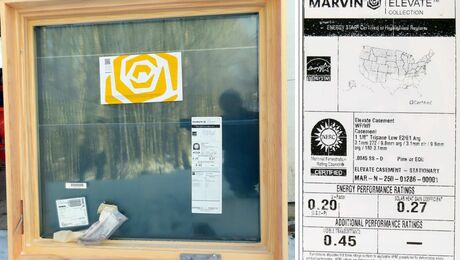What test determines if I have enough hot water or not to meet local building codes?
I rent a house that I recently moved into and have been here for almost two months. Since day one I’ve noticed I barely have enough hot water to take decent showers. My landlord has told me several times that the boiler that provides hot water is performing the way it was designed to. I called town hall recently to have the building inspector stop by. He measured the temperature of the hot water coming out of my kitchen faucet with the faucet set wide open. The measured temperature when it stabilized was only 80 degrees. I’d like to know if there are any other tests needed other than measuring the hot water temperature at the kitchen faucet to determine if I’m not getting enough hot water or not! The house has an oil-fired boiler that provides baseboard hot water heat for the house and provides hot water for bathing and cooking. I currently have hot water to take showers, but the water that comes out of the shower head is weak. I’ve checked the screen washers inside the shower head. They are not blocked with sediment. I can only use the hot water side of the shower faucet for taking showers. There’s not enough hot water where I could mix hot and cold to get a comfortable water temperature for showers. What I’ve needed to do is keep the faucet lever set to hot and close the faucet at least half-way to make the shower water hotter or open the faucet slightly which makes the water cooler. I’m thinking-of filing a court petition against my landlord for not providing enough hot water, but I’m wondering if I am getting enough hot water??? Please help?
GBA Detail Library
A collection of one thousand construction details organized by climate and house part









Replies
This isn't a legal help forum. Laws regarding rental housing are all extremely local.
80F water isn't hot water- it's tepid water.
A wild guess is hard water deposits in the boiler heat exchanger.
Thank you for answering so quickly! I apologize for having asked for legal help. I realize 80 degree water is not hot, but only tepid. I guess I'll have to ask the town building inspector exactly what the building codes state regarding hot water. I do have just enough hot water for taking showers, but like I mentioned it's a weak or low water pressure shower. So far the building inspector says the mixing valve on the boiler is defective and he's going to have my landlord replace it. I'm thinking (from experience) that the boiler is simply too small regarding BTU's and that a separate hot water heater may need to be installed. That's just my opinion, however. At least my landlord has agreed to dissolve the lease with me so I can move out if I want without forfeiting my security deposit.
The building inspector also found a half dozen electrical outlets that had an open ground which didn't meet building code and two of them had reversed polarity wiring as well? He also found the smoke detectors were over 10 years old and needed to be replaced and that a CO detector needed to be installed as well. Besides that he noticed my landlord had not pulled any permits regarding the boiler that my landlord installed himself along with new electrical wiring he had done and drain pipes. He's not happy with my landlord. He's also having my landlord hire a licensed master electrician to inspect the entire electrical system. I'm thinking that moving residence at this point might be what's best for me.
I think you should get your deposit and move before this place kills you.
Legionnaires' disease is usually spread by the breathing in of aerosolized water and/or soil contaminated with the Legionella bacteria. It thrives at water temperatures between 25 and 45 °C (77 and 113 °F)
The water heater should provide water no less than 115°to be safe.
http://www.wikipedia.org/wiki/Legionnaires%27_disease
Walta
But if the water heater is an on-demand boiler (vs tank), then water is at that temperature for < 1 min.
Legionnaires? Really? Oh that's wonderful (not)! The water heater within the boiler IS an on demand type, however the boiler only has a 5 gallon reserve. This means hot water travels heating up the pipes and by the time hot water reaches the kitchen faucet probably 4 gallons of hot water are left! Once the reserve hot water is depleted the furnace cannot maintain 110 degree F. hot water without my having to close the kitchen faucet at least half-way. Otherwise leaving the faucet wide open for hot water causes the hot water temperature to drop fast stabilzing at 80 degrees F. The boiler DOES provide hot water, however to have hot water I have to close the kitchen faucet or shower handle in the bathroom at least half-way closed! This slows the water traveling through the boiler giving the boiler more time to heat the water to a hotter temperature. In other words I do have hot water for taking showers, but the hot water is low volume or low gallons per minute hardly enough to take a decent shower. Sometimes I get cold while taking a shower. I then have to close the shower valve a little more and wait for the boiler to catch up to provide slightly hotter water. I hope you folks understand better, but thank you anyway - truly - for having replied.
Jes,
I agree with Dana: This is a legal question, not a green building question.
Tenants rights vary, depending on where you live. Here is an online document with general guidance, but remember that local laws vary.
Tenants Rights and Hot Water.